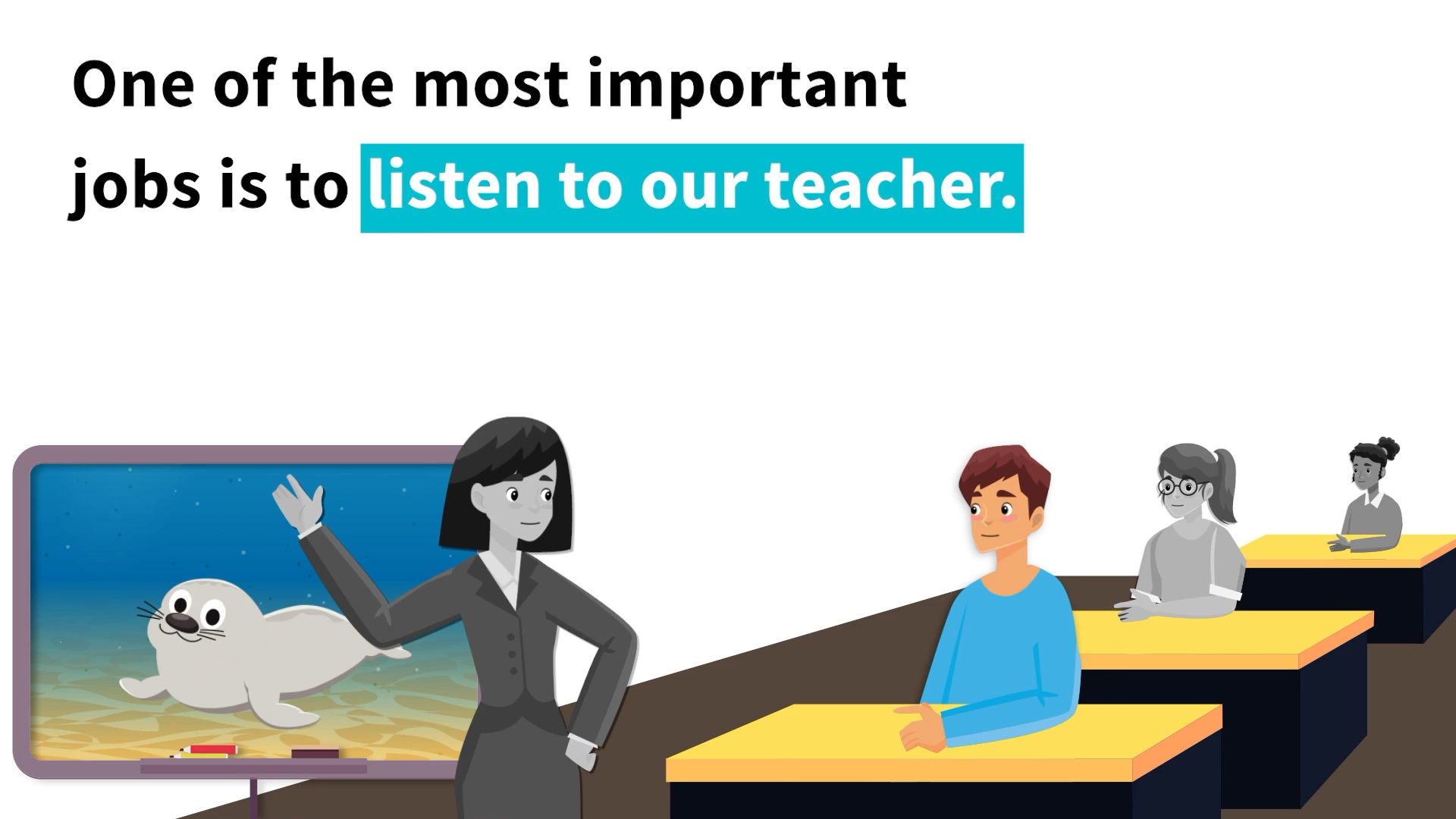
Introduction
As educators, one of our primary goals is to help students develop the skills they need to succeed in their lives. One of the most essential skills a student can acquire is the ability to listen effectively. Listening to their teacher is crucial for students to learn and grow in school. In this blog post, we’ll discuss the importance of listening to teachers, an easy no-prep activity to boost focus, discussion questions to stimulate further thought, related skills, and next steps for incorporating these skills into your classroom.
No-Prep Activity: The Focus Switch
The Focus Switch is a simple activity that requires no preparation or materials from the educator. It helps students practice switching their focus from a distracting thought back to the lesson at hand. Here’s how it works:
- Ask students to think of a distracting thought, like their favorite video game or TV show.
- Give them a few moments to let their minds wander.
- When you see that their focus has shifted, clap your hands or make a sound to signal them to switch their focus back to the lesson.
- Repeat this activity a few times, gradually increasing the time between the distraction and the signal to switch focus.
This exercise helps students become more aware of when their focus shifts and teaches them to quickly reorient their attention back to the teacher and the lesson.
Discussion Questions
Engage your students in a conversation about the importance of listening to teachers with these discussion questions:
- Why is it essential to listen to your teacher during class?
- What are some strategies you can use to stay focused and avoid distractions during class?
- How does listening to your teacher and learning new things make you feel?
- Can you share an example of a time when you were proud of yourself for listening well and learning something new?
- How can listening to your teacher now help you achieve your goals in the future?
Related Skills
Developing the ability to listen effectively is just one aspect of a student’s personal growth. Here are some other relevant skills for students:
- Self-awareness: Understanding their emotions, thoughts, and values.
- Self-management: Regulating emotions, thoughts, and behaviors to achieve goals.
- Social awareness: Recognizing the feelings and perspectives of others and showing empathy.
- Relationship skills: Establishing and maintaining healthy relationships with peers, teachers, and family members.
- Responsible decision-making: Making constructive choices about personal behavior and social interactions.
Next Steps
Now that you understand the importance of listening to teachers and have an easy no-prep activity to try in your classroom, it’s time to take the next step. Sign up for free samples of the discussed skill and others to help your students unlock their potential and thrive in school. By incorporating these principles of Social-Emotional Learning into your teaching, you’ll empower your students with the tools they need for success both in and out of the classroom.

